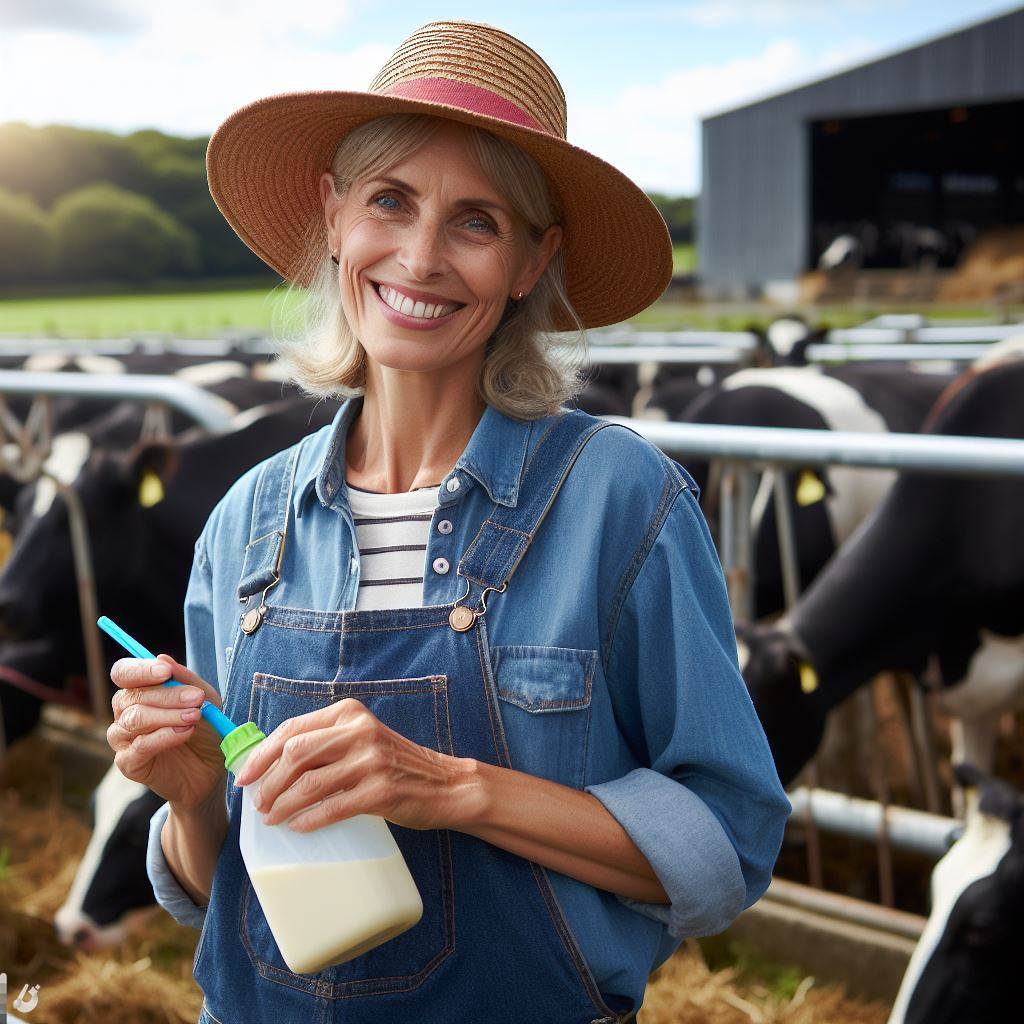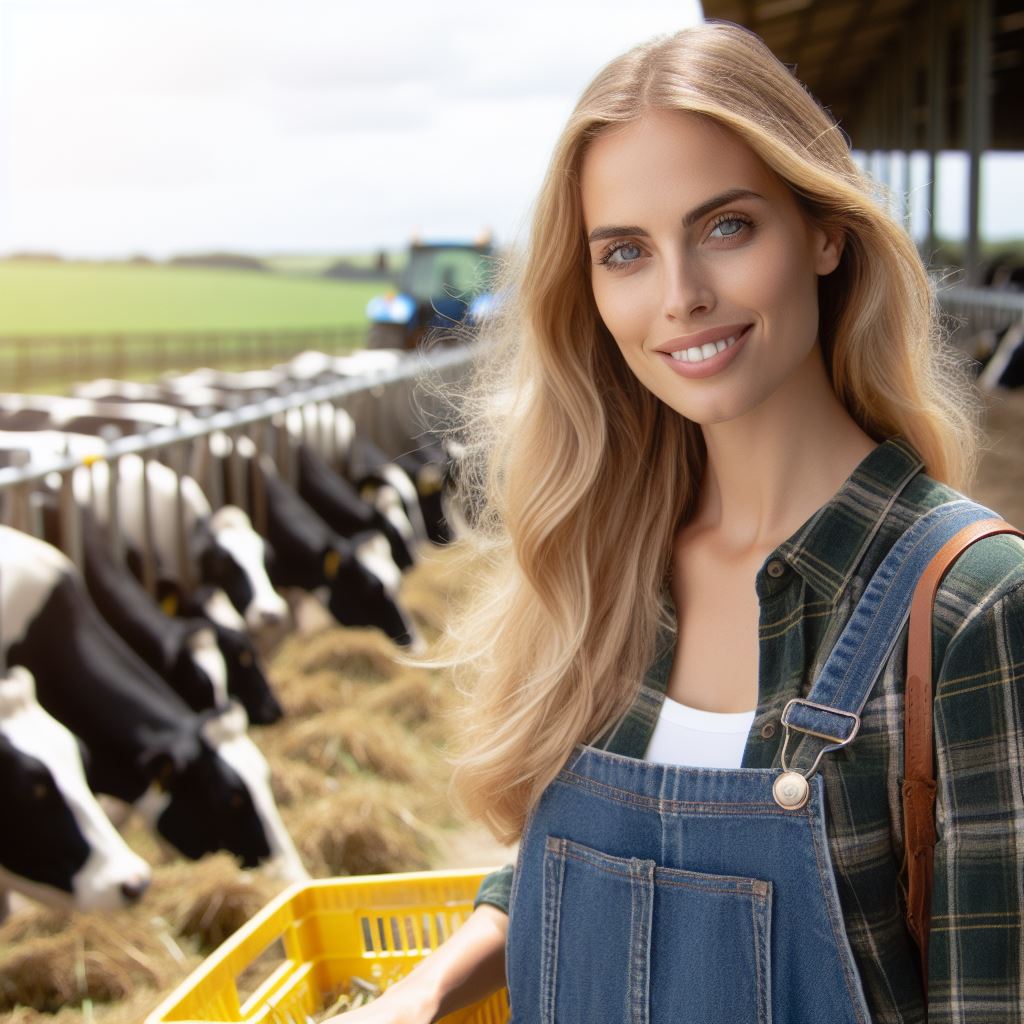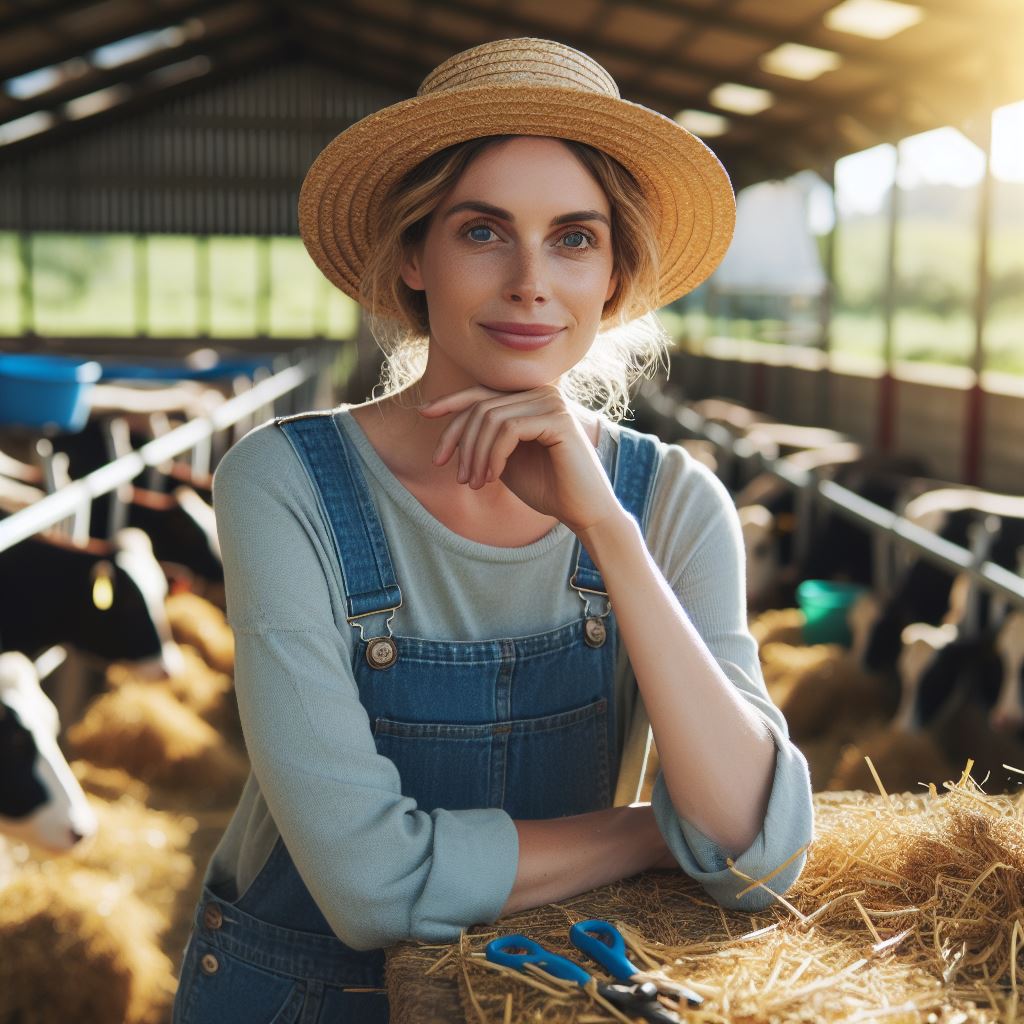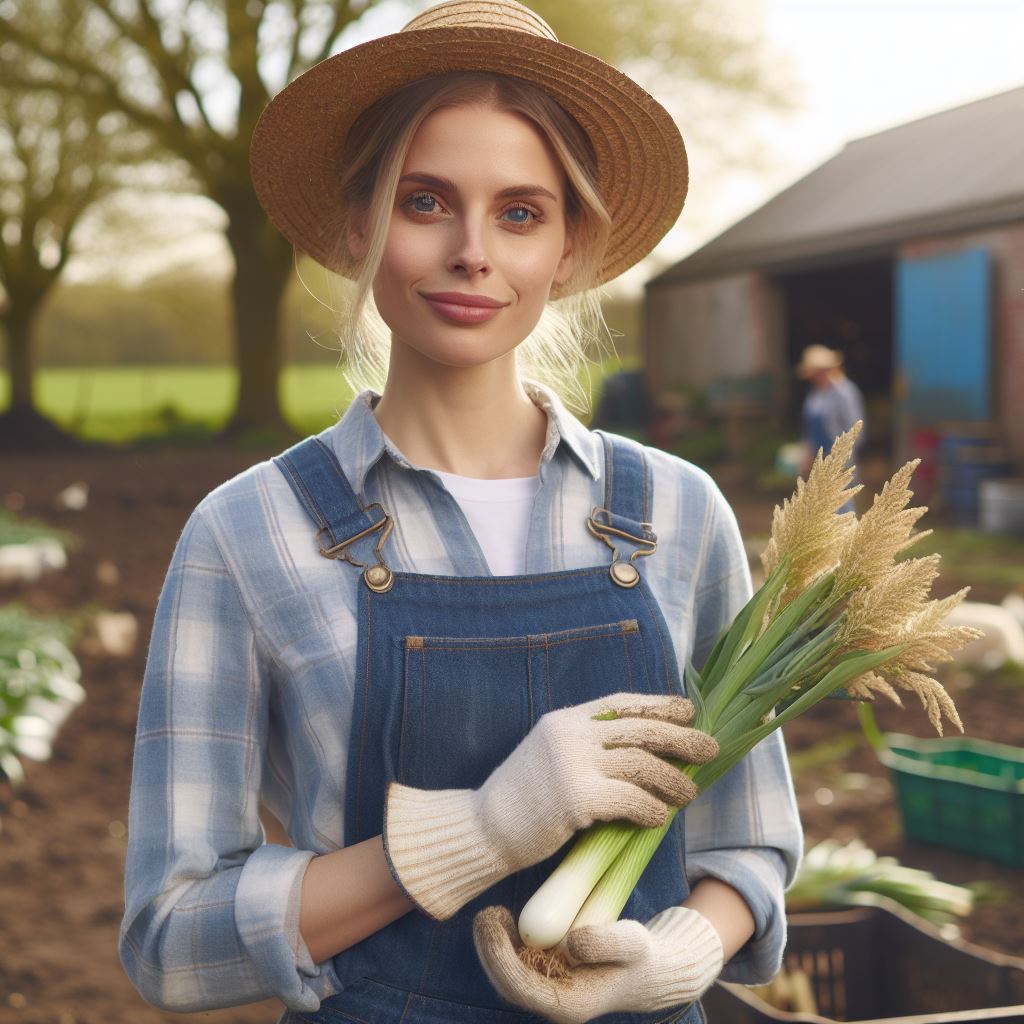Introduction
Modern UK farming is a cornerstone of the nation’s economy and food production, playing a crucial role in meeting both domestic and global demands. Technology Impact on Modern Farming
Within this dynamic landscape, technology has emerged as a driving force, revolutionizing traditional farming practices.
This blog delves into the intricate relationship between technology and modern UK farming, highlighting the diverse ways in which technological advancements have shaped and enhanced agricultural processes.
Overview of Modern UK Farming
Before delving into the impact of technology, it’s essential to understand the significance of modern UK farming.
Agriculture in the UK is characterized by a mix of large-scale commercial farms and smaller, family-run operations.
The sector contributes significantly to the nation’s economy and is intertwined with broader issues such as food security, rural development, and environmental sustainability.
The Role of Technology in Agriculture
The adoption of technology in agriculture is not a recent phenomenon, but the pace and scale of integration have accelerated in recent years.
Various technologies, ranging from precision farming and automation to data analytics and genetic engineering, are reshaping the agricultural landscape.
These advancements aim Sustainableto optimize resource use, enhance productivity, and address challenges such as climate change and evolving consumer preferences.
Thesis Statement
The central theme of this exploration revolves around the thesis that technology, in its myriad forms, has become a transformative force in modern UK farming.
From revolutionizing crop management to introducing innovative livestock practices, technology is influencing every facet of agricultural operations.
This blog will unfold the impact of technology in different dimensions, providing insights into how these changes are influencing the efficiency, sustainability, and overall trajectory of farming in the UK.
Increased Efficiency
Agriculture in the UK has undergone a transformative revolution thanks to technology, enhancing efficiency in various aspects.
Use of Automated Machinery and Robotics
- Precision farming techniques have evolved, employing advanced equipment for accurate planting, cultivating, and harvesting.
- Autonomous vehicles and drones are now indispensable tools, monitoring and managing crops with unparalleled precision.
Improved Resource Management
- Sensor technologies play a pivotal role in precise irrigation and fertilization, optimizing resource usage and reducing environmental impact.
- Real-time data analysis tools empower farmers with quick insights, aiding in strategic decision-making for crop management.
The integration of automated machinery and robotics has not only streamlined traditional farming practices but also paved the way for sustainable and resource-efficient agriculture.
Precision farming techniques, facilitated by state-of-the-art equipment, ensure that every action on the farm is deliberate and optimized for maximum yield.
Moreover, the use of autonomous vehicles and drones for monitoring and managing crops has drastically reduced the need for manual labor while providing farmers with accurate, real-time data.
This technological leap allows for proactive problem-solving and ensures that crops receive the precise care they need at every stage of their growth.
Improved resource management, driven by sensor technologies and real-time data analysis, signifies a shift towards sustainable farming practices.
By leveraging these technologies, farmers can make informed decisions that not only enhance productivity but also contribute to the overall environmental health of the farming ecosystem.
Enhancing Crop Production
Advanced Seed Technologies
- Harnessing the Power of GMOs: Embracing genetically modified organisms (GMOs) propels UK farming into a new era of increased yield and heightened resilience.
- Biotechnology Breakthroughs: Cutting-edge biotechnology strides forward, offering farmers invaluable tools for disease prevention and enhanced crop health.
Monitoring and Control Systems
- Eyes in the Sky: Remote sensing technologies revolutionize pest management, enabling farmers to detect and thwart potential threats early on.
- Mastering the Elements: Climate-controlled environments emerge as a game-changer, facilitating year-round crop growth and ensuring a consistent, reliable harvest.
In the dynamic landscape of modern UK farming, technology spearheads a transformative revolution. Advanced seed technologies, including genetically modified organisms (GMOs), usher in a paradigm shift.
Farmers now leverage GMOs to not only bolster yield but also fortify crops against the challenges of an ever-changing environment.
Biotechnology takes center stage in disease prevention, offering bespoke solutions to safeguard crops.
This proactive approach ensures a robust defense against potential threats, minimizing losses and promoting sustainable agricultural practices.
The integration of monitoring and control systems marks another stride towards precision farming.
Remote sensing technologies, akin to vigilant sentinels, empower farmers to detect and thwart pest invasions before they inflict significant damage.
Meanwhile, climate-controlled environments extend farming beyond seasonal constraints, unlocking the potential for year-round cultivation.
In this era of technological prowess, UK farmers stand at the forefront of innovation, armed with tools that not only enhance productivity but also foster a resilient and sustainable agricultural future.
Read: Aquatic Health Management by UK Experts
Sustainability and Environmental Impact
Modern UK farming is experiencing a transformative shift driven by technology, with a primary focus on sustainability and environmental impact.
Personalized UK Career Consulting
Receive tailored career guidance designed just for you. Get actionable steps and expert support to boost your career in 1-3 days. Take control of your career now.
Get StartedPrecision agriculture for reducing resource waste
- Maximizing efficiency is the cornerstone of precision agriculture.
- Water, fertilizers, and pesticides are now meticulously applied, minimizing waste.
- Precision tilling methods ensure soil quality is conserved for future generations.
Adoption of renewable energy sources
- Farms are harnessing the power of sunlight through integrated solar panels.
- Wind turbines dot the landscape, contributing to a cleaner, greener energy grid.
- Carbon emissions are drastically reduced, thanks to the embrace of renewable energy.
In the quest for sustainability, UK farmers are leveraging technology to enhance productivity while minimizing their environmental footprint.
Precision agriculture ensures that every drop of water and every nutrient contributes to optimal crop growth, while innovative tillage techniques protect the soil’s long-term health.
Moreover, the adoption of renewable energy sources is reshaping the energy landscape on farms.
Solar panels and wind turbines not only provide a clean and sustainable power source but also contribute to a significant reduction in carbon emissions.
This marriage of technology and agriculture exemplifies a commitment to both productivity and environmental stewardship, marking a promising section in the evolution of modern UK farming.
Read: UK Aquaculture Technician: Career FAQs

Changing Farming Practices
Data-Driven Decision Making
- Harnessing historical and real-time data transforms crop management, optimizing yield and resource utilization.
- Predictive analytics takes center stage, forecasting yields and discerning market trends with unparalleled precision.
Digital Connectivity and Farm Management Software
- Cloud-based platforms revolutionize record-keeping, streamlining farm operations for enhanced efficiency and productivity.
- IoT devices seamlessly integrate, providing real-time monitoring and data collection, fostering a connected, smart farming ecosystem.
In the dynamic landscape of modern UK farming, technology emerges as a transformative force.
Embracing data-driven decision-making, farmers analyze historical and real-time data, unlocking insights for optimized crop management.
Predictive analytics, a game-changer, empowers farmers with accurate yield forecasts and market trend predictions, steering them towards informed choices.
The advent of digital connectivity and farm management software further propels this agricultural revolution. Cloud-based platforms redefine record-keeping, ensuring streamlined and accessible data management.
Simultaneously, the integration of IoT devices ushers in a new era of precision farming.
With real-time monitoring and data collection, farmers are equipped to make proactive decisions, promoting sustainable practices.
In essence, technology intertwines with the roots of UK farming, fostering innovation, sustainability, and efficiency.
As the sector continues to evolve, these advancements promise a promising future for agriculture, ensuring that farmers stay ahead in the game of feeding a growing population.
Read: Sustainable Practices in UK Aquaculture Tech
Challenges and Future Implications
Initial Investment and Training Costs
Modernizing UK farming through technology brings both promises and hurdles. First, there’s the considerable hurdle of initial investment.
Farms looking to embrace technology must be prepared to invest in cutting-edge machinery, precision agriculture tools, and state-of-the-art data analytics systems.
This necessitates a shift in financial planning, as farmers must allocate funds not just for traditional resources but also for sophisticated technologies.
Additionally, the need for specialized training arises. Farmers and farmworkers must acquire new skills to operate and manage these advanced systems effectively.
- Initial investment demands allocation for cutting-edge machinery and precision agriculture tools.
- Farmers face a financial shift towards technology, impacting traditional budgeting.
- Specialized training becomes imperative for farmers to operate and manage advanced systems.
Potential Job Displacement and the Need for New Skill Sets
While technology brings efficiency, it also raises concerns about job displacement.
The automation of certain tasks may reduce the need for manual labor, leading to a potential shift in employment dynamics.
However, this doesn’t necessarily translate to job loss; rather, it emphasizes the need for a workforce with new skill sets.
- Automation may lead to a shift in employment dynamics.
- Job displacement sparks a demand for workers with updated skill sets.
- The workforce must adapt to technology, emphasizing the importance of ongoing education.
Ethical Concerns Regarding GMOs and Technology Reliance in Agriculture
As technology intertwines with agriculture, ethical considerations surrounding GMOs and heavy reliance on technology emerge.
Genetically modified organisms (GMOs) raise environmental and health concerns, prompting a critical evaluation of their impact.
- GMOs in agriculture prompt ethical deliberations on environmental and health implications.
- Technology reliance in farming necessitates a balanced approach considering ethical and ecological consequences.
- Continuous scrutiny is crucial to maintain ethical standards amid advancing agricultural technologies.
Most Importantly, as the UK farming sector evolves with technology, addressing these challenges becomes imperative for sustainable and ethically sound agriculture.
Read: Aquaculture in the UK: Education Pathways
Conclusion
- Technology has had a significant impact on modern UK farming.
- It has greatly improved efficiency, productivity, and sustainability in the agricultural sector.
- The use of precision farming techniques, such as GPS and drones, has allowed for more accurate crop management.
- Smart farming technologies like sensors and data analytics have enabled farmers to make better decisions.
- Automation and robotics have reduced the need for manual labor, saving time and increasing profitability.
- Technology has also improved animal welfare through innovations in monitoring and health management.
- Furthermore, the adoption of digital platforms and e-commerce has enhanced market access and boosted rural economies.
- The ongoing development and integration of technology in agriculture highlight its importance and potential for the future.
- Advancements in artificial intelligence, machine learning, and big data can further revolutionize farming practices.
- It is crucial for farmers to embrace technology to overcome future challenges, such as climate change and food security.
- Governments and industry stakeholders must continue to invest in research and development to drive innovation in the agricultural sector.
- Technology’s impact on modern UK farming has been transformative, and its significance will only grow in shaping the future of agriculture.
[E-Book for Sale]
500 Cutting-Edge Tech Startup Ideas for 2024 & 2025: Innovate, Create, Dominate
$19.99 • 500 Tech Startup Ideas • 62 pages
You will get inspired with 500 innovative tech startup ideas for 2024 and 2025, complete with concise descriptions to help you kickstart your entrepreneurial journey in AI, Blockchain, IoT, Fintech, and AR/VR.




